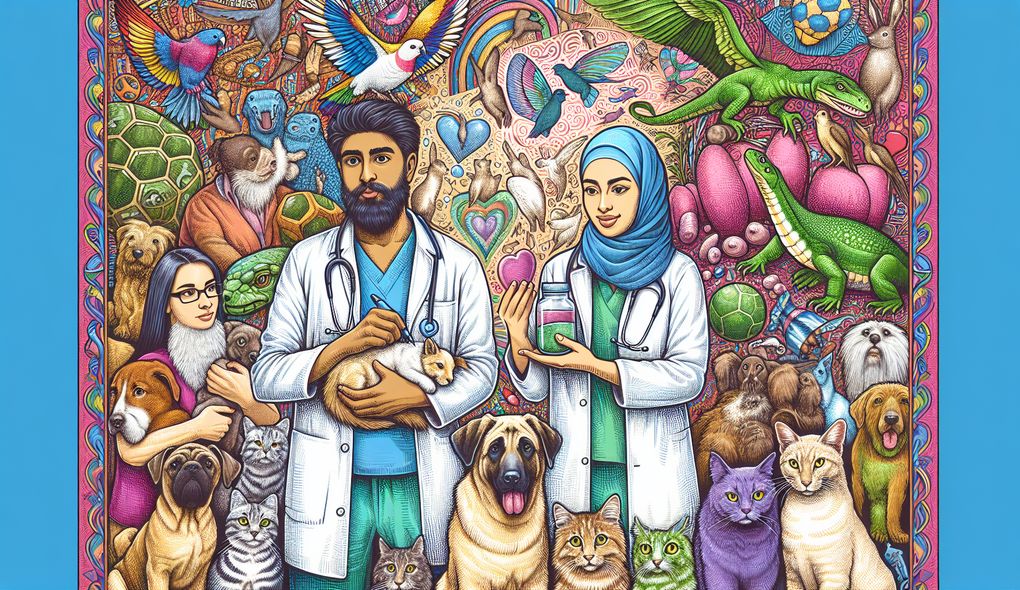What steps do you take to ensure the accuracy and reliability of your experimental results?
SENIOR LEVEL

Sample answer to the question:
To ensure the accuracy and reliability of my experimental results, I take several steps. First, I carefully plan and design my experiments, considering factors such as sample size and controls. I also make sure to conduct multiple repetitions of each experiment to ensure consistency. During the experimental process, I meticulously document every step and make note of any unexpected observations or issues that may arise. I also regularly calibrate and validate my equipment to ensure accurate measurements. After collecting the data, I perform thorough statistical analyses to validate the results. Finally, I compare my findings with existing literature and consult with colleagues to ensure the accuracy and reliability of my conclusions.
Here is a more solid answer:
When it comes to ensuring the accuracy and reliability of my experimental results, I follow a systematic approach. Firstly, I carefully plan and design my experiments, considering factors such as the choice of controls, sample size, and appropriate statistical analyses. This includes conducting a thorough literature review to identify existing knowledge gaps and establish a solid foundation for my research. To maintain attention to detail throughout the experimental process, I create detailed protocols and record all steps, observations, and any unexpected findings in a laboratory notebook. Regularly calibrating and validating my equipment is another crucial aspect of my workflow. This facilitates accurate measurements and minimizes potential errors. After collecting the data, I analyze it using appropriate statistical methods to determine significance and ensure robustness. This includes consulting with statisticians and utilizing statistical software packages. To validate and contextualize my findings, I compare them with existing literature and engage in discussions with colleagues and experts in the field. Collaboration is key in science, and by seeking input and feedback from others, I further enhance the reliability of my results. By employing these methods and following ethical guidelines, I ensure that my experimental results are accurate, reliable, and scientifically sound.
Why is this a more solid answer?
The solid answer expands upon the basic answer by providing more specific details and examples. It addresses all the evaluation areas listed in the job description by emphasizing research skills, attention to detail, data analysis, scientific literature review, and collaboration. It also demonstrates the candidate's ability to adhere to ethical guidelines in their research. However, it can still be improved by incorporating more specific examples of past research projects or experiences that showcase the candidate's expertise in ensuring accuracy and reliability of experimental results.
An example of a exceptional answer:
Ensuring the accuracy and reliability of experimental results is of paramount importance in veterinary science. To achieve this, I employ a comprehensive set of strategies. Prior to conducting any experiments, I meticulously design and plan each study, considering variables, controls, sample sizes, and statistical power analysis. This includes employing rigorous randomization and blinding techniques to minimize bias. To maintain attention to detail, I conduct pilot experiments to optimize protocols and troubleshoot any potential issues. Throughout the experiments, I record precise and detailed notes in an electronic data management system, which allows for version control and traceability. I also use automated data acquisition systems whenever possible to minimize human error. To ensure the reliability of my measurements, I validate and calibrate instruments regularly, following industry standards. When it comes to analyzing the data, I employ a combination of univariate and multivariate statistical models, considering factors such as confounders and interactions. Any outliers or aberrant results are thoroughly investigated and appropriate actions are taken. Moreover, I conduct sensitivity analyses to assess the robustness of my findings. To enhance the validity and generalizability of my results, I critically review the relevant scientific literature and engage in interdisciplinary discussions and collaborations. By seeking input and feedback from experts, I can address any potential limitations or biases in my research design. Additionally, I regularly participate in conferences and present my findings, which allows for further validation through peer review and constructive feedback. Finally, I ensure that all my research complies with ethical regulations and animal welfare standards, prioritizing the well-being of the animals involved. By combining these approaches, I consistently produce accurate, reliable, and influential experimental results.
Why is this an exceptional answer?
The exceptional answer goes above and beyond by providing a comprehensive and detailed response that showcases the candidate's expertise in ensuring accuracy and reliability of experimental results. It incorporates specific techniques such as randomization, blinding, and statistical power analysis, as well as the use of electronic data management systems and automated data acquisition systems. The answer demonstrates a deep understanding of the scientific process and highlights the candidate's ability to address potential limitations and biases in their research design. It also emphasizes the importance of interdisciplinary collaboration and engagement with the scientific community. Additionally, the answer showcases the candidate's commitment to ethical research practices and animal welfare. Overall, this answer exemplifies the candidate's exceptional qualifications for the position of Veterinary Scientist.
How to prepare for this question:
- Familiarize yourself with statistical methods commonly used in research to ensure accurate data analysis.
- Stay updated on the latest advancements and techniques in veterinary science to incorporate them into your experimental design.
- Practice documenting your experimental procedures and findings in a thorough and organized manner.
- Seek opportunities to collaborate with researchers from different disciplines to enhance the reliability and validity of your results.
- Prepare to discuss examples of past research projects where you employed strategies to ensure accuracy and reliability of experimental results.
What are interviewers evaluating with this question?
- Research skills
- Attention to detail
- Data analysis
- Scientific literature
- Collaboration

